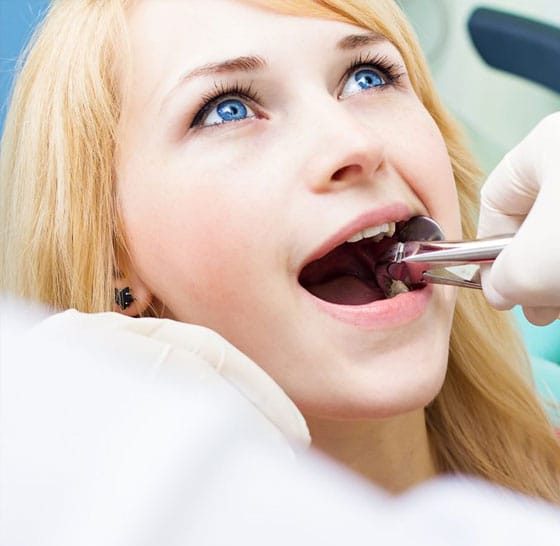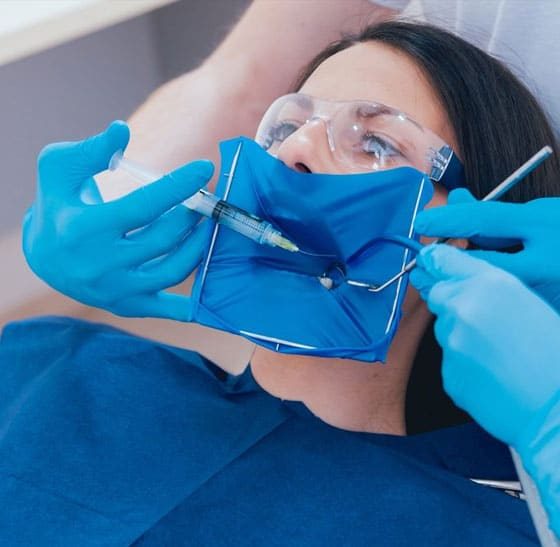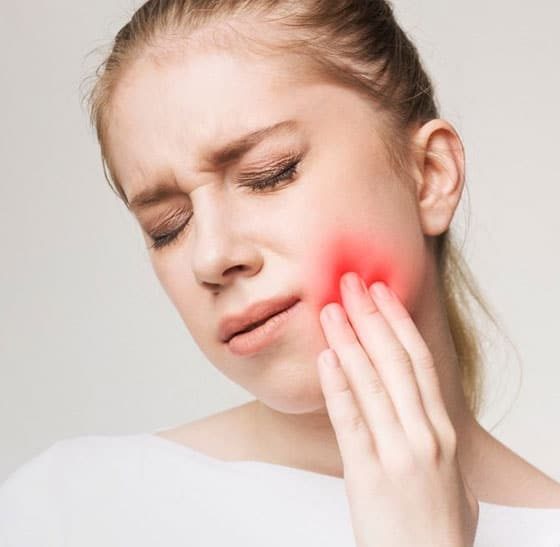Root Canal Treatment Maroochydore

What Is The Root Canal?
A root canal treatment is needed for patients who have a badly infected or damaged tooth. The qualified dentists who work from Suncoast Dental, can carefully remove the infected dental pulp and prevent tooth loss. Based in Maroochydore, the dentists working out of SunCoast Dental have helped patients from across the Sunshine Coast with their dental issues.
Inside each tooth is a pulp, which provides the tooth with nerves, connective tissue, blood supply and nutrients. When the tooth is damaged or diseased, the pulp can die which can cause permanent tooth loss if not treated immediately. When this is the case, your dentist can provide you with a root canal treatment, which effectively removes the diseased pulp to stop the infection, alleviate pain and prevent tooth loss. A successful root canal treatment means you will still have your natural teeth, and you’ll be able to eat, speak and smile without the need for dentures or dental implants.
Root Canal Procedure
The dentists working out of SunCoast Dental will always strive to protect your natural tooth. This is because your natural tooth will always work better than any artificial replacement, which will also require complex dental treatments. So, you can always count on them to carefully operate all root canal treatments.
Firstly, your dentist will take an x-ray to examine the shape of the root canals and determine areas of infection. A local anaesthetic is then used to numb the area around the infected tooth, before a hole is drilled into the tooth to remove the pulp. For anxious patients, your dentist can also provide IV sedation to help you relax during this procedure. Your dentist will then clean, drain and fill the tooth with a permanent filling. The tooth is then sealed for protection, and a crown is placed on top to increase structural strength. Whilst the process may sound stressful and occasionally several appointments may be needed, root canal therapy is often no more painful as receiving a regular filling.


Symptoms of an Infected Tooth
Typically, toothaches are the early symptoms of an infected tooth, so it’s vital that you visit the dentist as soon as you experience any discomfort. This will allow them to detect problems early and minimise stress and pain further down the track. Other symptoms of an infected tooth also include:
- Tooth sensitivity with hot or cold food
- Darkening or tooth discolouration
- Swollen & tender gums
- Persistent pimple on the gums or a hole in the tooth
- Swelling of the face or neck
Root canal treatments are typically a last resort option for many patients, if they wish to save their natural tooth. So, if it is recommended by your dentist, the only other option is to permanently remove the infected tooth and discuss artificial replacements.
After Care
To fully benefit from a root canal treatment, it’s vital that you carefully follow after care instructions given by your dentist. Typically, this involves brushing and flossing daily to prevent plaque buildup and reduce the chances of infection for the rest of your natural teeth. Your dentist may also suggest a new oral hygiene routine to better improve your oral health if required.

FAQs
What is a root canal treatment?
Root canal treatment is a dental procedure used to save a tooth that has become infected or inflamed in the soft tissue inside the tooth, called the pulp. During the procedure, the dentist will remove the damaged or infected pulp and clean and disinfect the inside of the tooth. The tooth is then filled with a special material and sealed, restoring the tooth’s function and preventing further damage or infection.
Is a root canal procedure painful?
Many people are concerned about the pain associated with a root canal procedure. However, modern techniques and anaesthesia make the procedure relatively painless. Most patients report little to no discomfort during the procedure itself. Afterward, some mild discomfort or sensitivity is common but can usually be managed with over-the-counter pain medication.
How long does a root canal treatment take?
The length of a root canal treatment depends on the severity of the infection and the tooth’s complexity. Most root canal procedures can be completed in one to two appointments lasting 30 to 90 minutes each.
How much does a root canal treatment cost?
The cost of a root canal treatment can vary depending on several factors, such as the tooth’s location, the number of canals and the severity of the infection. Dental insurance may cover part or all of the cost of the procedure, so it’s important to check with your provider to determine your coverage.
Can I eat normally after a root canal treatment?
It’s generally safe to eat normally after a root canal treatment, although you may want to avoid hard, crunchy or sticky foods that could damage or dislodge the temporary filling. Your dentist may also recommend avoiding very hot or cold foods for a few days after the procedure.
Can I drive myself home after a root canal treatment?
Most patients are able to drive themselves home after a root canal treatment, as long as they did not receive sedation or other medication that could impair their ability to drive.
How do I know if I need a root canal treatment?
Some common signs that you may need a root canal treatment include severe tooth pain, sensitivity to hot or cold temperatures, swelling or tenderness in the gums and discoloration or darkening of the tooth. However, only a dentist can determine if a root canal is necessary after conducting a thorough examination and taking X-rays. If you’re experiencing any of these symptoms, schedule an appointment with your dentist as soon as possible.
Can I brush and floss normally after a root canal treatment?
Yes, you can brush and floss normally after a root canal treatment. However, you should avoid putting too much pressure on the treated tooth until it has been fully restored with a permanent filling or crown.
How long will the effects of a root canal treatment last?
A root canal treatment is designed to last a lifetime with proper care, such as regular brushing and flossing and routine dental check-ups. However, there’s still a small risk of reinfection or damage to the tooth over time.
How can I prevent the need for a root canal treatment?
The best way to prevent the need for a root canal treatment is to practice good oral hygiene, including regular brushing and flossing and routine dental check-ups. You should also avoid chewing on hard objects, such as ice or hard candy, which can damage your teeth.
